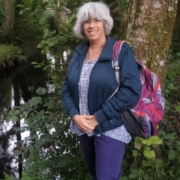Sage Journal Publishes Past MGSDII Visiting Professor
“Ideology, environment, and open space in conflict arenas: The discrepancies and harmonizing strategies of West Bank Israeli settlers”
Written by Tamar Arieli and Gad Schaffer
The natural environments of conflict arenas often embody invisible contexts for political analysis. This study questions how environmental agendas are framed and acted upon by mid-level environmental professionals engaged in land-focused conflict. Ideological attachment to contested land together with engagement in the polemics of conflict, facilitate unique engagements with environmental agendas, particularly regarding open space preservation. This engagement prioritizes conflict-related goals and thus creates discrepancies between environmental knowledge, attitudes, and actions. Our study focuses on Israeli West Bank settlers who serve as mid-level environmental professionals and share professional dilemmas. Mid-level environmental professionals, rather than high-level policy and decision makers, are “street-level bureaucrats” and therefore a potentially novel and revealing source of environmental positions within the settler community. Through interviews focused on Israeli environment-related policies in the West Bank, we reveal disparities between environmental knowledge and the positions grounded in this group’s political identity and loyalties and identify the three particular harmonizing strategies employed in narrating the realities of their professional initiatives and agendas. We expose a distinct dual agenda, one which acknowledges environmental values and concerns, and yet only selectively recognizes and engages in goals of open space preservation when these challenge settlement infrastructure and expansion. These environmental discrepancies can be interpreted as the cynical political manipulation of environmental values, yet we propose that at a mid-level professional level, they can serve as self-rationalization in resolving dual loyalties to both political and environmental agendas. Personal realities and life experiences of environmental professionals affected by the conflict are identified as significant to the design and support of the resulting selective environmental agenda.



